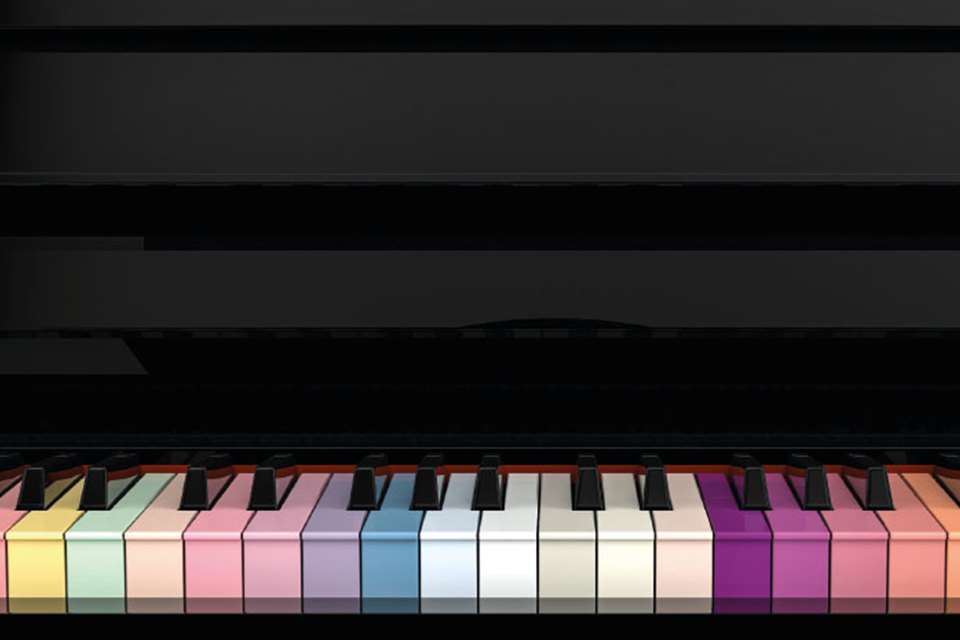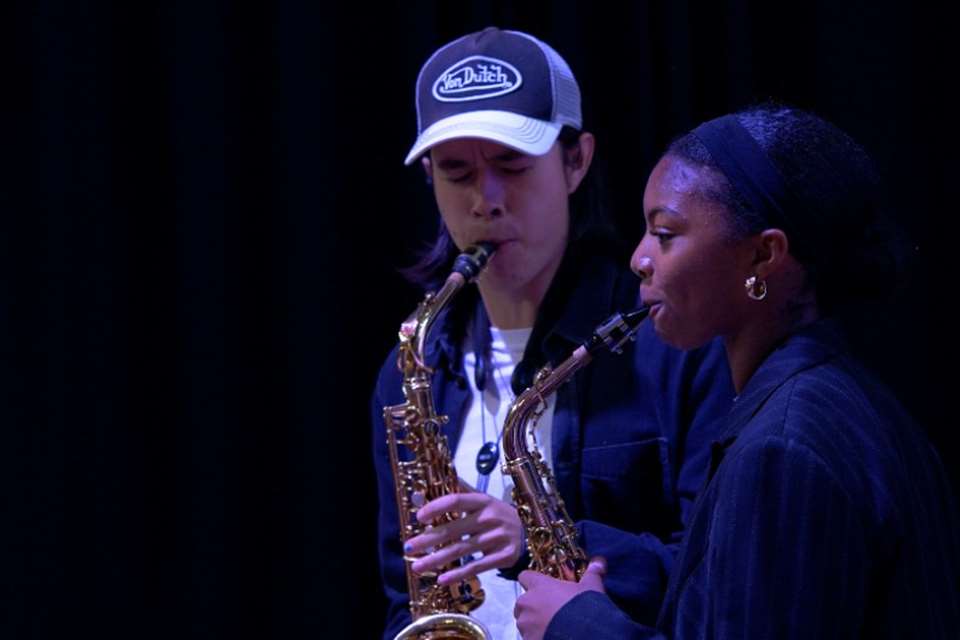Reviews: Trinity syllabuses for clarinet and flute 2023
Clarissa Payne
Wednesday, February 1, 2023
Clarissa Payne takes a look at what is new in Trinity's clarinet and flute syllabuses this year.

Trinity clarinet syllabus 2023
Clarinet teachers and students will find a more open and flexible approach in Trinity's new syllabus. Candidates will be able to mix and match repertoire from the classical and jazz lists, and there's no longer an end-date to the syllabus; instead, the exam board will keep adding options without calling time on the old ones.
More options
There are now 12 repertoire options (up from 9) per grade in the books, featuring new commissions and spanning a range of genres. In addition to the traditional accompanied and unaccompanied options, players can choose to play duets with another clarinettist. Detailed notes by acclaimed clarinettist and educator Paul Harris offer a wider perspective on each piece, with tips on technique and expression.
There are plenty of character and storytelling pieces for candidates at Initial level – from Lilac Lynx (Gary Wilkinson) to The Ghost's Wellies (Richard Mainwaring). Even beginners will be encouraged to show variety in dynamics and articulation.
Varied styles
At Grade 1 the pieces span a wide range of periods and styles, including Baroque, Romantic, English folksong and African-American spirituals. The popular spiritual ‘Nobody Knows the Trouble I've Seen’ is a chance for players to sing through and shape their phrases.
The Grade 2 selection mixes character pieces with Romantic favourites and specially-commissioned repertoire. This continues at Grade 3, with Gershwin's ‘Fascinating Rhythm’, arranged Wastall, added to the mix. Pintoo's Rain Dance by Amit Anand and The Battlements of Bodium Castle by Alan Richardson (both Grade 3) will appeal to candidates who enjoy painting musical pictures.
Grade 4 takes in everything from Bach to Bartók, from an arrangement of the Bourrée from Cello Suite No. 3, which will challenge the player's breath control, to another of the rhythmic ‘Stick Dance’ from the Romanian Folk Dances. There are also klezmer and fandango options for candidates, as well as a 12-bar blues from James Rae.
There's more klezmer from the same arranger (Ostermeier) at Grade 5, and another of Bartók's folk dances (arranged by Davies): the hypnotic In One Spot that calls for soft tones and delicate articulation. Chick Corea's La Fiesta is a bright Latin-jazz choice. There are classic studies and method pieces from Langey, Lefèvre and Berr, demanding finger control, elegant phrasing and a good command of ornaments.
Contrasting choices
At Grade 6, Keri Degg's Sunny Blue provides a contrast to Astor Piazzolla's yearning Ausencias. Nigerian composer Ishaya Yarison's rapid and rhythmic Ojuju Calabar and English composer Gordon Jacob's lyrical, wistful Waltz offer the candidate further opportunities to show different aspects of their playing.
Roma Cafolla's lyrical jazzinflected Ebony offers Grade 7 candidates rich and expressive possibilities, while Krommer's Adagio from the Concerto in E-flat requires expressive adagio playing in the Classical style. The up-tempo options are great fun, especially the Cuban composer Paquito D’Rivera's vigorous Contradanza.
Candidates are spoilt for choice at Grade 8 and will be able to put together a challenging and varied exam programme. David N. Baker's improvisatory Loneliness takes the player up into the altissimo register, as does Dubois’ gentle Andante semplice, which requires fine control in soft playing. There are plenty of virtuoso fireworks in the Caprice by Cavallini, the ‘Paganini of the clarinet’.
Trinity flute syllabus 2023
In recent years Trinity has introduced performance notes, which give context, practise tips and listening suggestions, to many of their graded exam repertoire books. As the author of the flute performance notes for 2017 and 2022, I've had an in-depth look at the pieces, and at the changes to the syllabus overall.
Trinity is taking a more flexible approach, with ‘ever-expanding repertoire’ instead of a syllabus-end date. It will also now be possible for candidates to combine repertoire from the classical and jazz syllabuses.
Level by level
Covering Initial level to Grade 8, the exam books each contain 12 pieces, taking in a wide range of styles. There are classical pieces known and loved by flautists alongside brand-new commissions from global composers. As well as the traditional accompanied and unaccompanied choices, there are duet options. Old traditional folk tunes, recent jazz numbers and songs from the shows offer plenty of choice overall – there are many opportunities for players to bring out wide-ranging aspects of their musical personalities.
This starts at Initial level, with pieces demanding a range of expression and character from the newest of flautists. There's a lively Renaissance Gaillarde by Attaignant, a dreamy and fantastical new commission from Yshani Perinpanayagam, and ‘Edelweiss’ from The Sound of Music.
The earlier grades
At Grades 1 and 2, candidates can pick from opera favourites, Baroque minuets, Romantic melodies and Chinese traditional music. There are jazz pieces by Rowland Sutherland and Mark Nightingale, and new commissions from Yshani Perinpanayagam, Diljeet Bhachu and Quincy Hilliard.
Grade 3's earworms are ‘A Whole New World’ from Disney's Aladdin and Javier Rosas’ Over the Waves (arranged Rae).
Candidates taking Grade 4 might choose an atmospheric unaccompanied Poulenc piece, or a lively and precise study by flautist-composer Hilary Taggart, entitled Suzuki. Tchaikovsky's Dance of the Little Swans is a chance to show the delicacy and accuracy of a ballet dancer, while the Indian composer Vivek Venugopal's Ebbing Desire explores an intense emotional landscape.
Gaining skills and repertoire
At Grade 5 there are many opportunities for lyrical playing and elegant phrasing, including a J.S. Bach sonata movement, Nielsen's The Fog is Lifting and Wilhelm Popp's Romanze. There are jazz options also from Daryl Runswick and Andy Scott.
Bloch's boisterous Allegro giocoso, Rob Buckland's joyous Free-Running, Köhler's Dance of the Insects and jazz-trombonist Mark Nightingale's Burn, Burn, Burn all require different types of high-energy playing for Grade 6. French-school classic Allegretto grazioso by Paul Taffanel and slow movements by Telemann and Handel all provide opportunities for contrast.
Beloved staples
‘Mambo’ from West Side Story (arranged by Parman) will be a popular and challenging choice for Grade 7 candidates, while Benjamin Kwasi Burrell's specially-commissioned Momenti recreates the feeling of Covid lockdown's strange days. Chopin's Variations on a Theme by Rossini will give players a workout and a chance to enjoy a taste of Italian opera, while an Adagio from a Flute Concerto by Devienne, the ‘French Mozart’, demands a firm grasp of Classical style.
Beloved staples of the flute repertoire, namely Fauré's Fantaisie and sonata movements by J.S. Bach, Mozart and Hindemith, feature at Grade 8. Vincenzo Sorrentino's improvisatory Distance requires a firm command of soft dynamics, while the South African composer Bongani Ndodana-Breen's Credoscapes I takes the player to the other end of the spectrum.
To find out more about Trinity's syllabuses for flute and clarinet, visit: trinitycollege.com/qualifications/music/grade-exams/woodwind





